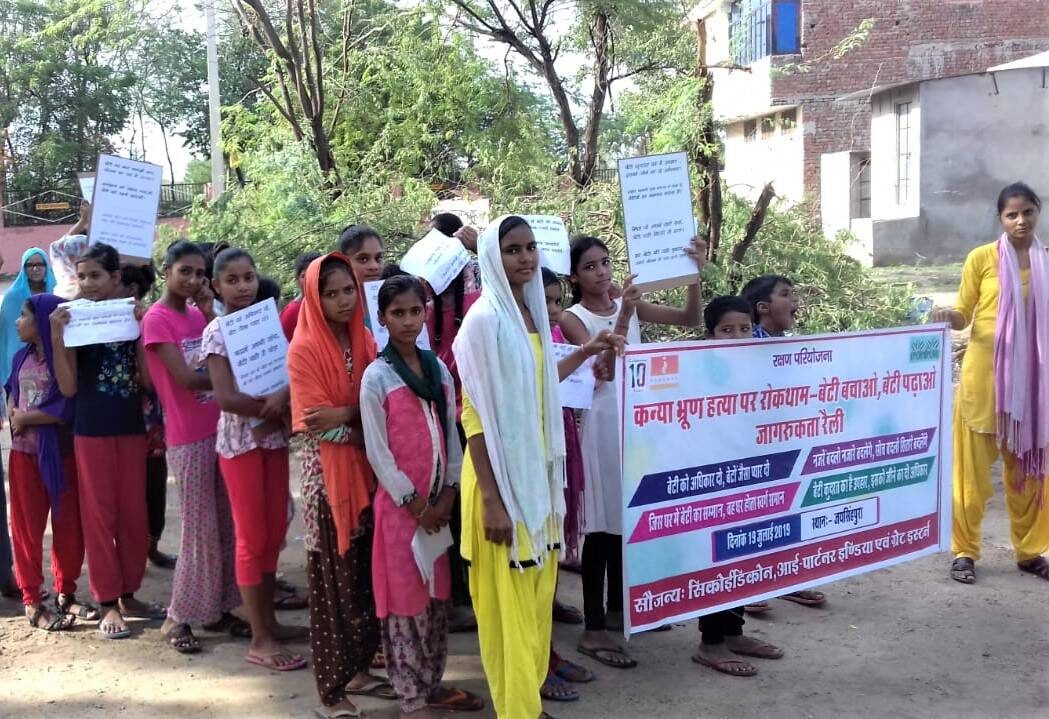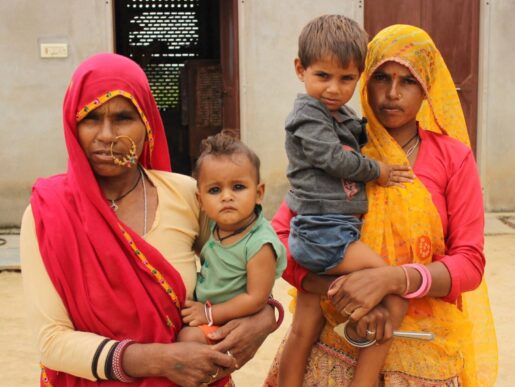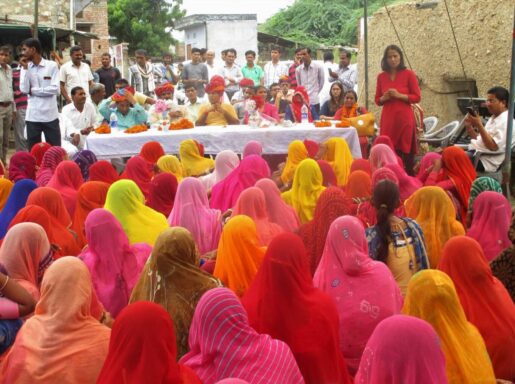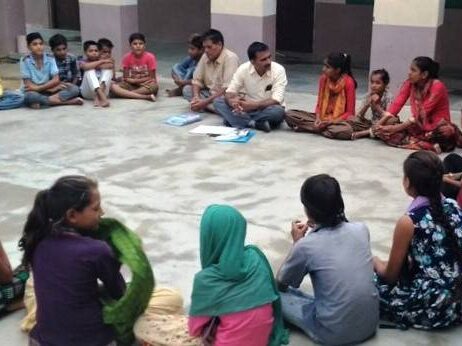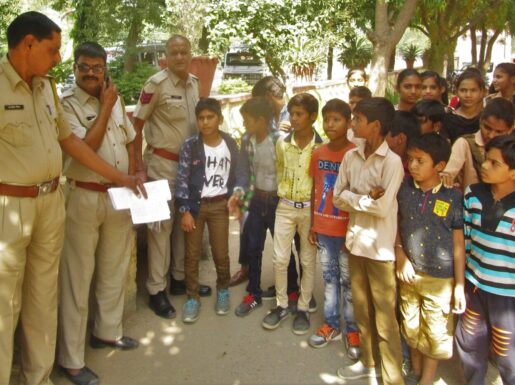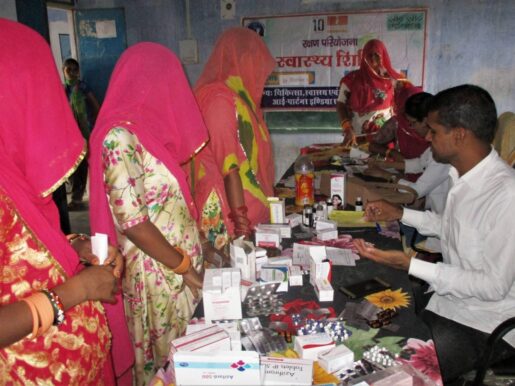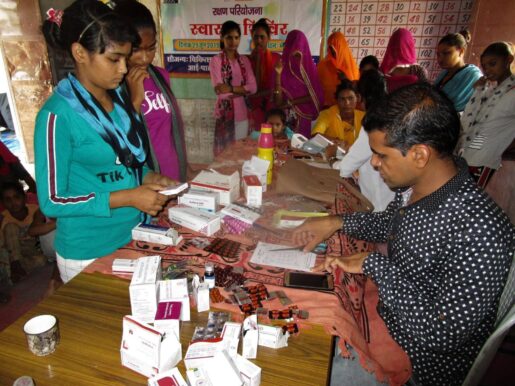BASIC RIGHTS
Rights are indivisible, interdependent and interrelated. CECOEDECON’s basic rights program focuses on enhancing access to rights-based entitlements of those who are most vulnerable, excluded and discriminated against. CECOEDECON is committed to work for the women and children, particularly in the areas of sustainable livelihoods, good governance, health, education, nutrition and violence against women. The focus is on strengthening democratic institutions and increasing participation of community in decision making so that the rights of poor and marginal can be availed.
The goal of Basic Rights theme is "To consolidate the ongoing empowerment processes and further strengthen the community based mechanisms that support rights based entitlements of the most excluded communities."
The three major issues covered under the Basic Rights theme are (1) Health & Nutrition, (2) Child Rights and (3) Gender.
The rural communities in Rajasthan face challenges stemming from low literacy, lack of awareness about rights-based entitlements and access to quality education and health services in remote areas which, when coupled with stringent socio-economic factors, greatly hamper their development potential. CECOEDECON through its Basic Rights program works on providing support and solutions to these problems. The program also takes steps to strengthen democratic institutions and forums at the local level, supporting community, women and children in addressing injustice and providing methods for ensuring inclusive, rights-centric development by being gender sensitive.
2.1 Gender
As a program strategy, Gender has been an important element of our programming. Indeed, one of the aims of the PIIRD has been to highlight gender considerations and strategically integrate them into planning directed at the sustainable development of communities.
The Basic Right program has been instrumental in mainstreaming the issues of gender and rights-based entitlements in the whole programming. To address specific development issues such as gender based discrimination, women trafficking, domestic violence etc. CECOEDECON has been undertaking specific interventions. The association with The Hunger Project has brought good results in terms of Empowering elected women representatives and local governance. The strategy also works in tandem with the livelihood security agenda to empower women economically.
To address gender-based discrimination the KSS, along with support groups and other village level institutions have organised awareness drives focused on domestic violence, sex-selective abortions, child marriage, girls’ education, social security issues of single women and widows, etc. Other stakeholders have also supported in organising awareness events. CBOs were provided specific training on different legal safeguards related to rights and welfare of women to enable them to support women facing discrimination and atrocities in the rural areas. Efforts have been made to support implementation of important acts, such as the Pre-Conception and Pre-Natal Diagnostic Techniques act (PC&PNDT/PCPNDT)) and Prevention of Child Sexual Offences Act (POSCO). Implementation of these acts is hindered by the dismissive attitude towards women’s rights and lack of knowledge of the acts themselves. Efforts are being made towards awareness-building within communities and victim support, but much work remains to be done.
2.2 Children’s Rights
CECOEDECON’s focus in children’s rights was on the quality of education and child protection.
Enrolment drives have been organised to get dropout children from nomad and other excluded communities to return to school. Many poor and vulnerable children have been re-enrolled or supported to acquire education by other means.
The program has also been instrumental in extending support to drop-out girls belonging to tribal communities especially the primitive Sahariya tribe by setting up a residential bridge course in collaboration with the state government to help mainstream them into education, thus providing them a second chance for education. Drop-out girls in other areas have also been mainstreamed through advocacy and support measures.
In order to strengthen the local level infrastructure and education system, School Management Committees (SMC) have been mobilised and trained to take up active roles in ensuring quality education.
CECOEDECON is also working on a lifecycle approach on child development with the support of Child Fund India. The initiative works on holistic development of over 500 children covering their education, health, livelihood and protection issues. Continuous engagement and handholding support is provided not just to the child but also all stakeholders associated with him or her. Specific emphasis is also paid on improving the systems associated to ensure the fulfillment of a child’s rights.
Special training sessions have been organised with CBOs to develop operational knowledge on child protection laws and schemes such as POSCO and the Integrated Child Protection Scheme (ICPS). These sessions sought to spread awareness of issues such as child labour, child marriage, security of girls, sexual abuse at schools and corporal punishment.
In response CBOs have taken up larger roles to ensure the children’s rights at the local level. Critical issues such as enrolment and ensured retention, the quality of mid-day meals, construction of toilets for girls, the provision of safe drinking water and ensuring the quality of education were successfully taken up by the CBOs. These also analysed different schemes and programs and presented their views to the authorities.
2.3 Health & Nutrition
CECOEDECON also focuses on malnutrition issues and effective health services. Efforts have been made to strengthen local systems and empower local infrastructure and communities to actively participate in the effective implementation of health related schemes and programs.
Other activities cover a multitude of health-based issues with CBOs trained to lead on nutrition security issues at the grassroots (village and block levels). CBOs have been working as watchdogs to identify gaps in service delivery; and engaging with the governance mechanisms to activate and regularise health services.
CECOEDECON also has experience of working on maternal and child health concerns and has implemented a range of programs to improve health seeking behaviour among communities with poor maternal and child health status; while also working on the supply side loopholes to ensure that the healthcare needs of the poor communities are met.
Awareness about the benefits of proper early childhood care and nutrition has been enhanced by encouraging women to register for Anganwadi Centres. Monitoring of fresh registrations of pregnant women at AWC has been supported by the CBOs. This has ensured reduction in complications during and after pregnancies and contributed to a higher incidence of institutional deliveries. CECOEDECON has also actively contributed to different national and state-level campaigns to bring about changes in the policy environment.
CECOEDECON is also actively working on the adolescent health concerns, with the support of UNFPA, by strengthening the health care mechanism and engaging with the government to enhance health care agenda at the state level.
